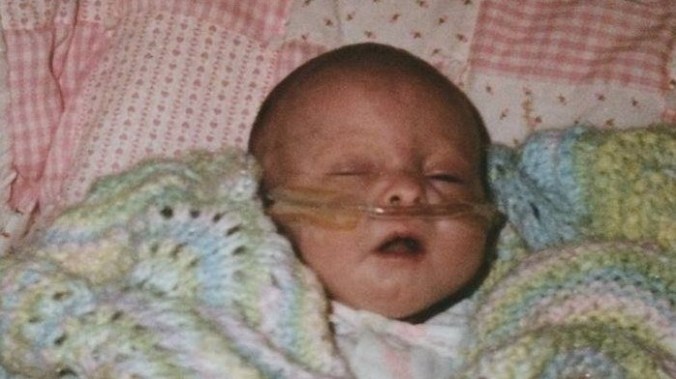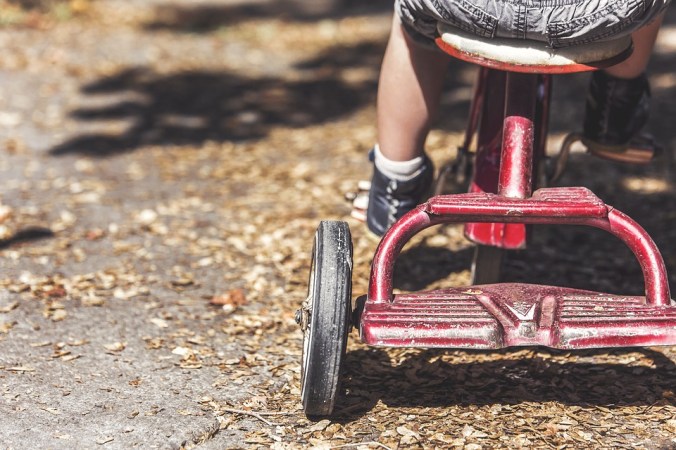by Elizabeth

Hello fellow moms and home educators! The following is a master list of the articles I’ve written on motherhood and home education, now conveniently in one place, with motherhood skewed toward the top of the list and homeschooling skewed toward the bottom, and with missionary life sprinkled in here and there.
(I don’t normally think of myself as a “mommy-blogger,” but as it turns out, I’ve written an awful lot about my life as a mother.)
I’m a Proverbs 31 Failure
I have this vague notion that the modern Proverbs 31 woman stays at home with her (many!) children, educates them at home, makes all their (organic!) meals from scratch, enthusiastically serves her church community, and, after all that, is still (frequently!) romantically available to her husband. And while there is certainly nothing wrong with any of these endeavors individually, I personally cannot live up to all these expectations at once.
Intensity and Intentionality {a note about marriage and motherhood on the field}
In many ways marriage and parenting on the field is the same as it is in my home culture, but its intensity level is higher. Missionary life simply requires more of me, and in order to match its intensity, I have to be intentional about taking care of both myself and my family. I have to daily turn my heart toward them and toward God. When I don’t, the consequences are great. But when I do, the reward is greater still.
“Me Too” Moments
I always feel so discouraged about motherhood on Sundays. Sundays completely wear me out, taking care of my youngest children’s needs. I feel so out of my league. I think about all the mom blogs out there and wonder how these women have all this energy just to spend on their kids’ intellectual and spiritual development? I’ve got sin issues of my own that need working out; how can I give 110% to each kid???
What I Want to Give My TCKs
There’s something else I want to give my TCKs, and that’s privacy. I’ve chosen a very public profession; my children, however, have not. They may go wherever I go and live wherever I live, but they didn’t choose to live a public life the way I did. Perhaps when they’re grown, they will. I don’t know. I only know I want to give them the luxury of choosing it for themselves.
A Prayer For My Third Culture Kids
My child, I’m well aware that in this life, not everyone gets married. But should you happen to marry, first and foremost I pray you will marry a fellow lover of Jesus. And then — oh then I pray you will marry someone who feels at home in the In Between spaces, who knows how to live in the margins of life, who’s comfortable crossing over and blending in, even if never quite fully.
On Not Being the Casserole Lady
Sometimes I think about people with the gift of hospitality and get this gnawing, guilty feeling. Why can’t I be more like them? I wish I could, for hospitality seems like the Real Spiritual Gift. Delivering meals to doorsteps, inviting large groups into your home for meals, hosting people long-term as part of your family — this all sounds so very first century Christian. I sigh and start to think I must not measure up.
I’m Not Supposed to Have Needs
The idea that “other people’s needs are more important than my own” sounds very spiritual. It sounds very sacrificial and giving. But we are all of us humans, created and finite beings with limited resources. Our lives are powered by the Holy Spirit, true, but none of us can survive if we think we are only here for others, or if other’s needs are always more important than our own.
These are the (Mon)days of Our Lives
The boys were screaming, “Her finger! String! Her finger’s stuck on some string!!” I ran in, and looked, and sure enough, my other daughter had wrapped a string around her finger. The top third of her index finger was already dark purple, and the threads looked deep. I told the boys to go get the scissors, but I was able to untangle it before they returned.
Sometime We Eat Cereal For Supper
Sometimes I bemoan the fact that I can’t do everything all the time. That I can’t seem to get my life in order and pull myself together and balance all the needs. But maybe I’m not supposed to. Maybe every day isn’t supposed to contain every thing. Maybe each day is only supposed to contain some of the things. Maybe something is always going to fall through the cracks.
The Little Word That Frees Us
We talk a lot about Missionary Kids (MKs) being Third Culture Kids (TCKs), but we talk less often about another aspect of their lives, the Preacher’s Kid (PKs) aspect. These MKs of ours, these kids we love so fiercely, are both TCKs and PKs. They deal with both the cultural issues of TCKs and the potential religious baggage of PKs. It’s the religious baggage that I want to talk about today.
That Time Paul Talked About Breastfeeding
You need a lot of stamina. You don’t sleep through the night for months on end. Sometimes you get painful mastitis or yeast infections. You have to keep up your water and calorie intake. To your embarrassment, you leak milk everywhere. Or you have to work hard to make enough milk. Sometimes you can’t figure out for the life of you how to make this child stop crying, but somehow you have to stay calm while you do it. On top of that, you’re basically tethered to your child because you don’t know when they’ll need to eat again. You sacrifice many things for this child, this child whom you love so tenderly and so fiercely.
The Thing That Happened While I Was Scrubbing the Kitchen Floor With a Toothbrush
For me today, obedience means looking at the people who are already in my life, and saying yes to THEM. It means saying no to certain other things. I’m finding that as I practice my yeses and nos, I’m more content in each moment. I’m more joyful in each moment. I’m more present in each moment.
On Your High School Graduation: A Letter to My Third Culture Kids
I must say goodbye to you like this, no matter where in the world I live. And when you do leave, there are things I want to tell you. Things like. . . You are my child. You are now an adult, and I’m proud of who you are, but you will always be part of my family. Our home can always be your home. No matter where we live, we will always welcome you into it.
7 Thoughts for Graduating TCKs
If you let them, the questions of home, belonging, and identity that your TCK childhood has asked you to answer can take you deeper into the heart of God than ever before. If you’ll take the time to look for Him, you’ll find Jesus on the other side of every question you have. Only Jesus can help you live an unhindered life. His is the face of love, and He is the answer to every question you’ll ever ask. So go with Him: there is redemption on this road.
You Don’t Have to Home School Preschool
Here is what you actually need for the preschool years: a home full of life and love. And books. Lots and lots of books. Kids learn so naturally at this stage, and they’re interested in so many things, that there’s no need to do anything formal.
Dear Homeschool Mother of Littles: Don’t Give Up
One of these days it’s going to be worth it. You’re going to turn around and find that everything you’ve been working towards and everything you’ve been longing for is finally coming to fruition. It’ll all be right here, right now, today. Just keep going.
The Home School Manifesto
We will commit to seeing our children as whole, integrated beings and not as students only, and we acknowledge that their scholarship — whether high, low, or somewhere in between — is only one aspect of their personhood.
6 Things I’ve Learned From 6 Years of Homeschooling
When I was first exploring the idea of homeschooling our children, a woman at church told me very matter-of-factly that in order to homeschool, the mom has to really want to. She told me how her husband had wanted them to homeschool. She wasn’t opposed to it and thought she would try it out for him, but she just wasn’t all that interested in it. She was the one who had to do the teaching, not her husband, who had originally wanted it. Eventually, they quit, but it wasn’t the end of the world. They just sent their kids to school, and mommy was happier.
Let Me Tell You About Kassiah Jones
That Friday I took the first of what I’m now calling a “Kassiah Jones Day.” I canceled home school. I played games with my kids. We watched sciences videos in the air conditioning. I read more than usual to them. I’m with them all the time, but I don’t always share enjoyable activities with them. Instead I focus on finishing our lessons, and then in my “free time,” I work.
After 8 Years of Homeschooling, I’m Giving Up
For years I avoided the way “expert” homeschoolers scheduled their school year, with six weeks on and one week off. I was afraid that kind of rhythm would make the school year last forever and that I wouldn’t have a significant enough summer break to recharge. Who wants to do school all the time?? And school all the time is exactly what that approach sounded like. I opted for the “traditional” school schedule instead.
Two Sanity-Saving Home School Practices
Later I spoke with my husband – who was himself homeschooled – about these things. He agreed that my expectations had been ridiculously high and supported my effort to find more reasonable expectations.
8 Practices That Are Revolutionizing My Parenting
I’m understanding more fully that we are not looking for perfection – in ourselves or our children. We’re looking for progress. For growth. My husband likes to say, “All learning happens one step at a time.” It’s plastered on the wall of our home school, in fact. But though we had pounded that fact into our children’s heads (with varying degrees of success), it had not yet reached down into mine.
Unrealistic Expectations (Home School Burnout Part 1)
I got to the end of most school days and didn’t want any more kid-interaction. I just wanted to quit and go hide somewhere. I wasn’t playing games with my kids anymore, I wasn’t reading aloud to them, I wasn’t enjoying them. I felt guilty about my lack of interaction. I complained to my husband that homeschooling was stealing my motherhood. This wasn’t what all the home school speakers and writers promised would happen if I chose to home school. Everything was supposed to be peaches and cream! Rainbows and butterflies! Pony rides in May sunshine!
“Mom Fail” (Home School Burnout Part 2)
So when the first Monday of summer break came around, I took a break from parenting — almost literally. I let myself be a “bad” mom: I locked myself in my bedroom and let my children watch movies. All.day.long. I didn’t talk to them, I didn’t read to them, I didn’t play with them. It was a total “mom fail.”
The Mean Mommy (Home School Burnout Part 3)
I began to see that I was aggravating the homeschool stress through my reactions and attitudes. Busted! God was convicting me big time. You mean this all came back to me? You mean I’m the problem here? I didn’t want to admit that. I would rather blame my issues on something outside me. I really couldn’t though.
Resources for the New and the Weary (Home School Burnout Part 4)
For me, recovering from home school burnout was about addressing spiritual and emotional issues, as well as practical issues. Here are some resources that helped.
How to be a Temporary Trailing Spouse
As many of you know, Jonathan was homeschooled, and I wasn’t. When we started our family, I just figured we would homeschool because Jonathan would want that. After a few years as a mom, however, I wasn’t quite so sure anymore. I was afraid I’d do it poorly. I was afraid I wouldn’t enjoy being with my kids ALL DAY. I was afraid that life would consist of only one thing: schoolwork.
Going Back to (Home) School
This year in our curriculum, we studied ancient history, from the first recorded accounts in Mesopotamia, to the fall of Rome. This means our studies covered the entire time period of the Bible, including both testaments. And I discovered: I did not know as much as I thought I knew.
Daughter
We’d been studying China, and the art materials came from our curriculum’s China Kit. We mixed the ink ourselves, used special brushes on special paper, and stamped our work in red at the bottom.
Homeschool Math Curriculum Reviews from an Engineering Mom
I LOVE math. I got so excited when my oldest started studying the coordinate plane in algebra that I began drawing on the walls and talking about trigonometry and calculus (see photo below). That was way too much, way too soon, and my husband had to pull me back from my adventure in Mathland before my student’s brain melted down. Now I know not to get too ahead of myself.
Thoughts on Teaching Writing from a Writer/Editor Mom
I remember something Susan Wise Bauer said once. It was something to the effect of, “Good writers intuitively know how to construct sentences, paragraphs, and papers that are beautiful and logical, but they’re not sure exactly how they do it.”
That means that if writing comes easy for you, you might not know how to explain the process to someone else. But students who struggle with writing need explicit guidance. And so do their teachers.




